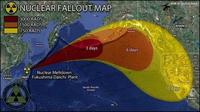-
Sewage treatment removes widely used home and garden insecticides from wastewater
Even though sewage treatment plants are not designed to remove tiny amounts of pesticides, they do an excellent job of dealing with the most widely used family of home and garden insecticides, scientists reported. The use of pyrethrins, derived from chrysanthemum flowers, and the related synthetic pyrethroids, has been on the increase during the last decade. Researchers found that advanced sewage treatment reduced the levels of pyrethroids by more than 97 percent.
-
-
Making people invisible to mosquitoes
Mosquitoes are more deadly to humans than any other animal. Their bites transmit malaria and other diseases that kill an estimated one million people around the world each year. In the United States, mosquitoes spread rare types of encephalitis, an inflammation of the brain. They also transmit heartworms to pet dogs and cats. Scientists described discovery of substances that occur naturally on human skin and block mosquitoes’ ability to smell and target their victims – in effect, offering people, pets, and livestock with an invisibility cloak against these blood-sucking insects.
-
-
New detectors for chemical, biological threats

In the late 1990s, Sandia scientists developed a simple-to-use handheld chemical detector for the military, the MicroChemLab. Ever since, Sandia has improved such microfluidics- and microelectromechanical (MEMS) systems-based instruments that identify chemicals based on gas chromatography, or GC, and resonator-style instruments such as surface acoustic wave (SAW) detectors. The lab’s researchers are building on this sensor work to invent tiny detectors that can sniff out everything from explosives and biotoxins to smuggled humans.
-
-
Worries grow about Syria’s biological weapons capabilities, intentions
The debates among experts in Western and Middle Eastern intelligence services and militaries about the use of chemical weapons by the Assad regime revolve around how many times Assad has used chemical weapons, not whether such weapons were used. Neighbors of Syria have become increasingly alarmed – and, in private, have expressed their anxiety in discussions with the United States – about another illicit Syrian WMD program: biological weapons. The readiness of the Assad regime to use one proscribed weapon – chemicals — has led to growing unease among Syria’s neighbors that the regime may not find it too difficult to violate other weapon-related taboos. Biological weapons could give the Assad regime an effective means of retaliation because, if the weapon is well-designed, the lethal contents would spread easily without leaving tell-tale signs about the origin of the attack – or even evidence that there has been an attack.
-
-
FDA to require imported food to be inspected at the source

Each year about forty-eight million Americans get sick, some 128,000 are hospitalized, and about 3,000 dies from foodborne illnesses. Companies importing food into the United States will be held to higher safety and health standards if new proposed rules by the Food and Drug Administration (FDA) are passed. Under the proposal, the FDA would require importers to inspect food abroad before the food reaches American ports.
-
-
Crop pests spread as Earth warms, threatening global food security
Currently 10-16percent of global crop production is lost to pests. Losses of major crops to fungi, and fungi-like microorganisms, amount to enough to feed nearly 9 percent of today’s global population. These figures will increase further as global temperatures continue to rise, and a new study shows that global warming is resulting in the spread of crop pests toward the North and South Poles at a rate of nearly three km a year.
-
-
Tracking antibiotic-resistant strains of Salmonella from farm to fork

Every year in the United States, the various strains of Salmonella together are responsible for an estimated one million illnesses, 20,000 hospitalizations, and 400 deaths at an economic cost exceeding $3 billion. Salmonella Typhimurium accounts for at least 15 percent of clinically reported salmonellosis infections in humans nationally. The number of antibiotic-resistant isolates identified in humans is increasing steadily, suggesting that the spread of antibiotic-resistant strains is a major threat to public health.
-
-
Wildfires to worsen with climate change

Air quality has vastly improved over much of the United States in the past forty years as a result of government efforts to regulate emissions. Gradual climate change may contribute in the coming years to increases in significant, disruptive events like severe storms, floods, and wildfires. A Harvard model predicts wildfire seasons by 2050 will be three weeks longer, up to twice as smoky, and will burn a wider area in the western United States. These increasing wildfires may erase some of the progress made on air quality.
-
-
Fukushima radioactive plume to reach U.S. next year

The radioactive ocean plume from the 2011 Fukushima nuclear plant disaster will reach the shores of the United States within three years from the date of the incident, but is likely to be harmless, according to a new study. While atmospheric radiation was detected on the U.S. west coast within days of the incident, the radioactive particles in the ocean plume take considerably longer to travel the same distance.
-
-
Aquifer supplying a third of U.S. irrigated groundwater depleting quickly: study
The High Plains Aquifer of Kansas — also called the Ogallala Aquifer — supplies 30 percent of the U.S. irrigated groundwater. New study finds that if current irrigation trends continue, 69 percent of the groundwater stored in the High Plains Aquifer will be depleted in fifty years.
-
-
Nanoparticles in food pose health risks
Nanomaterials are increasingly used in water treatment, food packaging, pesticides, cosmetics, and other areas. There is a growing concern that these particles could pose a potential health risk to humans and the environment. In a new study, researchers have developed a reliable method for detecting silver nanoparticles in foods.
-
-
New understanding of key step in anthrax infection
Scientists advance A new hypothesis concerning a crucial step in the anthrax infection process. The research teams have explored the behavior of the toxins that rapidly overwhelm the body as the often-fatal disease progresses. Their findings suggest a new possible mechanism by which anthrax bacteria deliver the protein molecules that poison victims. Anthrax is easily weaponized; the findings could help lead to a more effective cure.
-
-
Irradiated mosquitoes provide malaria vaccine
A new malaria vaccine is derived from mosquitoes that have been irradiated but not killed. The radiation critically weakens the malaria parasite, Plasmodium falciparum, which is extracted from the insects’ salivary glands and administered intravenously to subjects.
-
-
Rapid response, imaging of injuries aided Boston Marathon bombing victims
According to the Centers for Disease Control and Prevention (CDC), bombing survivors have the highest incidence of injury to soft tissue and musculoskeletal systems with the most extreme injury being traumatic amputation, which is reported in up to 3 percent of cases. The Boston Marathon bombings resulted in three fatalities and 264 casualties, with the most severe injuries involving lower extremities of those located closest to the blasts. Blast injuries within civilian populations are rare in the United States, so when they do occur they challenge the medical community rapidly to respond to concurrent evaluation and treatment of many victims.
-
-
Drones help kill bugs dead
The Florida Keys Mosquito Control District is considering using a drone to spot shallow-water pools where mosquitoes breed along the Keys. The 2.2-pound, 2.5-foot-long drone would use infrared cameras to locate the shallow pools and allow the district rapidly to treat those areas with larvicide.
-
More headlines
The long view
A Shining Star in a Contentious Legacy: Could Marty Makary Be the Saving Grace of a Divisive Presidency?
While much of the Trump administration has sparked controversy, the FDA’s consumer-first reforms may be remembered as its brightest legacy. From AI-driven drug reviews to bans on artificial dyes, the FDA’s agenda resonates with the public in ways few Trump-era policies have.
